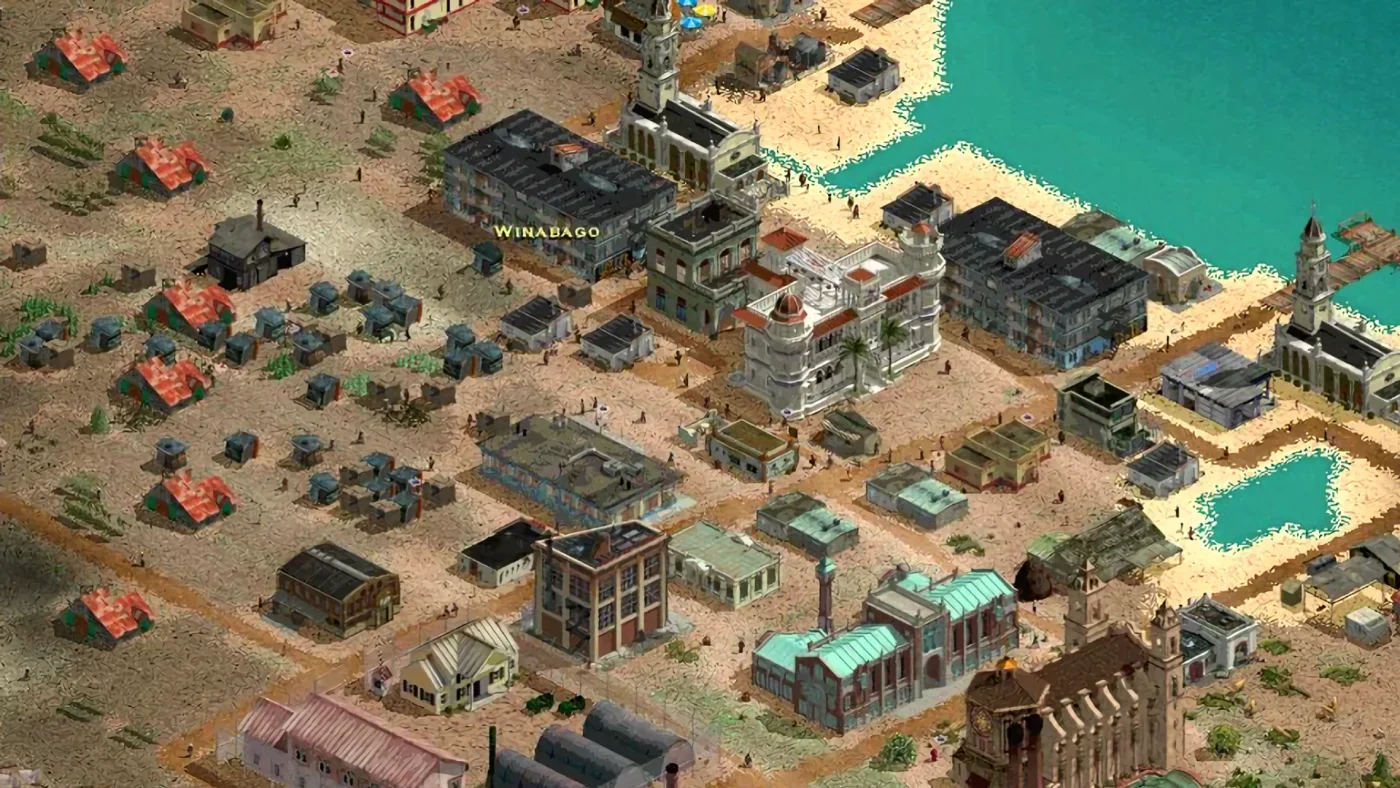Tropico, released in 2001 by PopTop Software, emerged as a distinctive entry in the city building genre, offering players the unique role of a dictator presiding over a Caribbean island. With its blend of city-building mechanics, political strategy, and a satirical take on Cold War politics, Tropico quickly carved out a niche for itself. Its gameplay, lore, and subsequent influence on the gaming industry warrant a comprehensive look back.
Gameplay Mechanics
Tropico is a city-building simulation where players must manage various aspects of island governance, from urban development and economic management to political manoeuvring and social policies. Players take on the persona of El Presidente, balancing the demands of different factions—such as the military, intellectuals, capitalists, and communists—each with their own interests and influence on the island’s stability. The game introduced a sophisticated economic system, requiring players to build infrastructure, manage resources, and develop tourism or industry to generate revenue.
The political dimension added a layer of depth rarely seen in simulation games of the time. Players had to navigate elections, suppress uprisings, and manage foreign relations with superpowers like the USA and the USSR. The choice between democratic and authoritarian methods of rule provided a sandbox for players to experiment with governance styles, each with its own set of challenges and outcomes.
Lore and Narrative
Tropico’s narrative is deeply entrenched in a caricatured version of Cold War-era geopolitics. The game’s setting, an unnamed Caribbean island, draws inspiration from real-world locales and historical contexts, particularly the regimes in Cuba and other Latin American countries during the mid-20th century. This backdrop allows for a rich tapestry of stories and scenarios, with each game session potentially unfolding as a unique narrative shaped by player decisions.
The game’s humour and satire are evident in its portrayal of political events and figures, with exaggerated characters and scenarios reflecting the absurdities of dictatorial regimes and international politics. This approach not only entertains but also invites players to reflect on the complexities and often paradoxical nature of political power.
Comparisons and Influences
Tropico can be compared to other city-building and management games like SimCity and Civilization, yet it distinguishes itself through its focus on political dynamics and personalized governance. Unlike SimCity, which emphasizes urban planning, Tropico’s gameplay hinges on the interplay between political decisions and their socioeconomic impacts. Civilization’s influence is seen in Tropico’s broader strategic elements, but Tropico narrows this focus to a single island, allowing for a more intimate and detailed exploration of leadership and development.
The game has influenced subsequent titles in the genre by highlighting the importance of narrative and player choice in simulation games. Its success demonstrated that political themes and satirical content could enhance the depth and appeal of management simulations.
Political Undertones
The political themes in Tropico are not just superficial; they are integral to the gameplay. The game allows for an exploration of different political ideologies and their practical implications. Whether players choose to run a democratic paradise or a ruthless dictatorship, the consequences of these choices are reflected in the island’s development and the happiness of its citizens. This political sandbox encourages players to think critically about governance and the ethical implications of their decisions.
Tropico Reloaded and Expansions
The success of Tropico led to several expansions and re-releases, with Tropico Reloaded combining the original game with its expansions, Paradise Island and Tropico: Mucho Macho Edition. These expansions introduced new scenarios, buildings, and challenges, enriching the gameplay experience and extending the game’s longevity. Paradise Island, for instance, added new tourist attractions and environmental factors, while Mucho Macho Edition included additional content and improvements.
Origins and Development
Developed by PopTop Software and published by Gathering of Developers, Tropico benefited from the creative vision of industry veterans who sought to create a game that was both entertaining and thought-provoking. The game’s development was marked by a commitment to authenticity in its depiction of Caribbean culture and politics, alongside a desire to innovate within the simulation genre.
Legacy and Influence
Tropico’s legacy is evident in its enduring popularity and the numerous sequels it has spawned. Each new instalment has built upon the foundation laid by the original, refining gameplay mechanics and expanding the game world while maintaining the series’ distinctive humour and political satire. Tropico has influenced other games in the genre, encouraging developers to incorporate political elements and narrative depth into their designs.
In conclusion, Tropico remains a seminal title in the realm of strategy and simulation games. Its unique blend of city-building, political strategy, and satirical storytelling has left an indelible mark on the gaming industry, inspiring both players and developers to explore the intricate dance of power, policy, and personality that defines leadership and governance.


